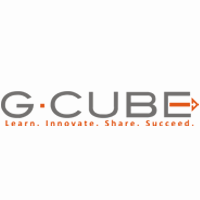Which Employee Performance Roadblocks Dig Into Your Profit Margin?
Employee performance directly impacts business performance and success. As they say, "Bad managers tell employees what to do, good managers explain why they need to do it, but great managers involve people in decision-making and improvement." Effective performance management is therefore critical for organizations to improve their bottom line and productivity.
Common Employee Performance Roadblocks
As it is very important for a doctor to diagnose the disease before starting any medication, the first step to improving performance for organizations is to identify the roadblocks.
Poor Job Description
Job descriptions must be SMART – Specific, Measurable, Achievable, Relevant, Time-bound
An employee's role must be clearly defined within a team and the larger organization. Managers must discuss performance expectations and ensure clarity around how performance is to be measured. Organizational goals must be linked to individual job descriptions, and performance must be measured against those descriptions.
Long Duration Performance Check
It is not advisable to wait for annual or bi-annual appraisal cycles to check in on performance roadblocks. Timely feedback and regular check-ins are essential elements of a robust performance management process.
Rather than terming it as a "timed" process, organizations must ensure that their managers act as "in the flow of work" performance appraisers. When managers give feedback in the flow of work, employees start taking ownership of their performance and become better equipped to identify and address any performance roadblocks.
Subjective Assessments
Often managers share feedback in a run-off manner, like, highlighting "Needs improvement" or "Work on communicating better with colleagues" or providing feedback long after it should have been shared. Instead, they must give clear and concise feedback across a broad spectrum of performance metrics that are aligned with business objectives.
Implementing systems like a 360-degree appraisal, on-the-job-assessment, management by objectives, peer reviews, and specific behavior-based appraisals help identify and address any employee performance issues with more focus on objective assessment.
Unidentified Skill Gaps
Managers must bring the skill gaps to the notice of the employees just when the performance starts dripping. This helps employees understand what and where they lack and what needs to be done to improve. It lends insights into potential performance roadblocks and paves the way for addressing employee performance issues in a better manner.
Delayed Corrective Action To Address Performance drop
As the nature of work is evolving, so must the approaches to performance management. With the increasing shift towards continuous learning, the need to constantly upskill employees, and the rising employee expectations, we can see that the erstwhile approach of annual or bi-annual performance reviews is being transformed into something more continuous, real-time, and multidirectional.
A survey by Gallup [1] found that only 20% of employees feel motivated through performance management to do outstanding work. Transforming performance management requires managers to effectively motivate behavior change among employees. They must encourage employees to influence their own career development and adopt a growth mindset.
What's Next?
Merely identifying performance roadblocks has no meaning if we do not take corrective actions on time. So, as the ones responsible for improving performance, we must find methods and processes to identify the appropriate corrective actions.
It is often found that learning and performance are not linked as they should be. Most organizations have the tools to record the performance metrics, tools to deliver learning, and tools to measure performance, but what is missing is the tool or a method to link them.
It is important to first define the desired business outcomes and understand how learning initiatives can drive those outcomes. This clarity or understanding will then help design the learning initiatives to improve performance. Also, we should have a mechanism to find out which learning initiatives will result in performance improvement and which learning initiatives need to be eliminated.
The market is now coming up with a new category of products that will help organizations link their performance apps with their learning and training tools.
References
[1] Re-Engineering Performance Management









